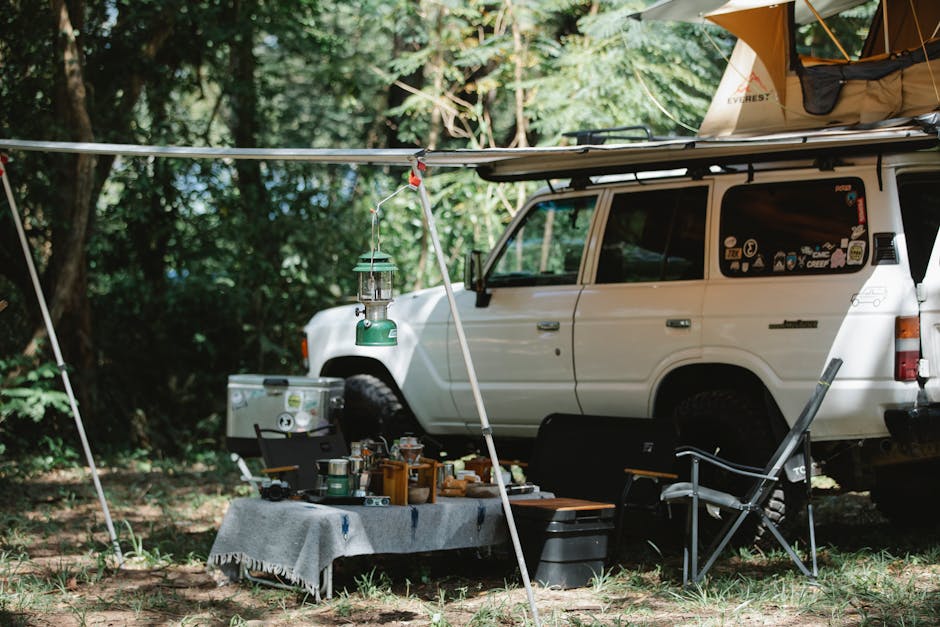Camping Lanterns: Illuminating Your Outdoor Adventures
When the sun sets and darkness descends upon the wilderness, there is something magical about the soft glow of a camping lantern illuminating the campsite. Camping lanterns have long been a staple in the outdoor enthusiast’s arsenal, providing light, warmth, and a sense of security in the great outdoors. From traditional fuel-powered lanterns to modern LED marvels, these portable light sources have evolved over the years to meet the needs of campers, hikers, and adventurers alike. In this comprehensive guide, we will delve into the world of camping lanterns, exploring their history, technology, applications, and more.
The Evolution of Camping Lanterns
Before the advent of modern camping lanterns, early campers relied on torches, candles, and oil lamps to light their way in the wilderness. The first portable lanterns, fueled by kerosene or propane, revolutionized the camping experience, providing a brighter and more reliable source of light. These lanterns were often bulky and cumbersome, requiring frequent refueling and maintenance.
In the mid-20th century, the introduction of battery-powered lanterns marked a significant shift in the world of camping lighting. These lanterns were more compact, lightweight, and user-friendly, making them a popular choice among outdoor enthusiasts. With the rise of LED technology in the 21st century, camping lanterns became even more efficient, durable, and versatile, offering long-lasting illumination in a variety of settings.

Types of Camping Lanterns
Today, campers can choose from a wide range of camping lanterns, each designed to suit different needs and preferences. Traditional fuel-powered lanterns, such as propane and kerosene lanterns, are still popular among purists who value the warm, natural light they provide. These lanterns are ideal for extended camping trips where access to electricity may be limited.
For those seeking a more eco-friendly and convenient option, solar-powered lanterns are a sustainable choice that harnesses the power of the sun to illuminate the campsite. Rechargeable lanterns, powered by built-in batteries or external power sources, offer a cost-effective and convenient lighting solution for campers on the go.
Choosing the Right Camping Lantern
When selecting a camping lantern, there are several factors to consider, including brightness, runtime, durability, and weight. LED lanterns are known for their energy efficiency and long-lasting bulbs, making them an excellent choice for extended camping trips. Look for lanterns with multiple light modes, such as dimming and strobe settings, to adapt to different lighting needs.
For campers who prioritize portability, compact lanterns that collapse or fold for easy storage are a practical option. Lanterns with built-in handles or hooks can be hung from tents, branches, or other structures to provide overhead lighting. Waterproof and impact-resistant lanterns are essential for outdoor adventures where rough conditions may be encountered.
The Benefits of Using Camping Lanterns
Camping lanterns offer a multitude of benefits beyond simply providing light in the dark. They create a cozy and inviting atmosphere at the campsite, allowing campers to relax, socialize, and enjoy their surroundings after sundown. Lanterns can also improve safety by illuminating pathways, cooking areas, and other potential hazards.
Moreover, camping lanterns are versatile tools that can be used for a variety of activities, such as reading, cooking, and playing games. Some lanterns even come equipped with USB ports or solar panels for charging electronic devices, adding an extra layer of functionality to these essential camping accessories.
Expert Opinions: What Outdoor Enthusiasts Have to Say
To gain further insight into the world of camping lanterns, we reached out to seasoned outdoor enthusiasts for their thoughts and recommendations. John, an experienced camper, shared, “I always bring a rechargeable LED lantern on my camping trips. It’s lightweight, compact, and provides plenty of light for the entire evening.” Sarah, a hiking enthusiast, added, “I love my solar-powered lanternit’s eco-friendly and reliable, perfect for off-grid adventures.”
Common Misconceptions About Camping Lanterns
Despite their many benefits, camping lanterns are sometimes subject to misconceptions and myths. One common misconception is that LED lanterns are not as bright as traditional fuel-powered lanterns. In reality, modern LED lanterns can produce a surprisingly bright and clear light that rivals their older counterparts.
Another misconception is that camping lanterns are only useful for camping. While they are indeed essential for outdoor adventures, camping lanterns can also be used during power outages, backyard barbecues, and emergency situations. Their versatility and portability make them a valuable tool in a variety of settings.
FAQs About Camping Lanterns
1. How long do LED lanterns typically last on a single set of batteries?
LED lanterns can last anywhere from 10 to 200 hours on a single set of batteries, depending on the brightness level and battery capacity.
2. Are solar-powered lanterns effective in cloudy or rainy conditions?
Solar-powered lanterns can still generate power in cloudy or rainy conditions, although their charging efficiency may be reduced. It’s recommended to charge them fully before heading into inclement weather.
To Wrap Things Up
Camping lanterns have come a long way since their humble beginnings, evolving into essential accessories for outdoor adventurers of all kinds. Whether you prefer the warm glow of a traditional kerosene lantern or the high-tech efficiency of an LED lantern, there is a camping lantern to suit every preference and need. By choosing the right camping lantern and incorporating it into your outdoor gear, you can illuminate your camping experience and create lasting memories under the stars.

